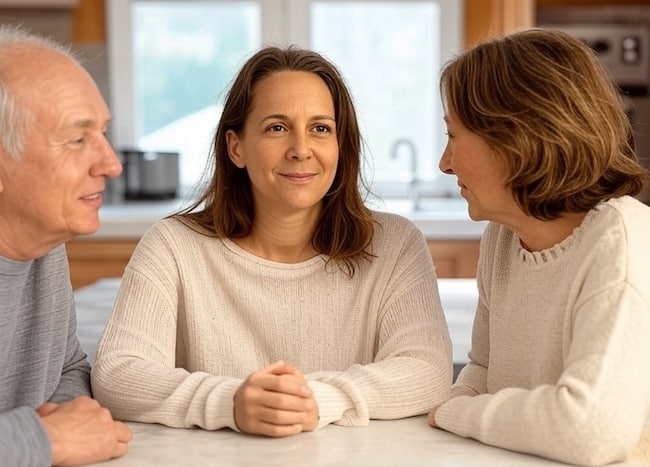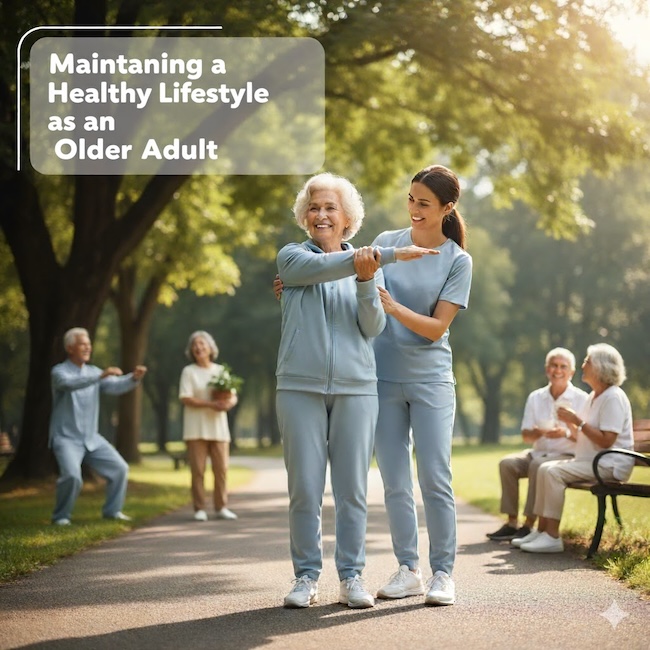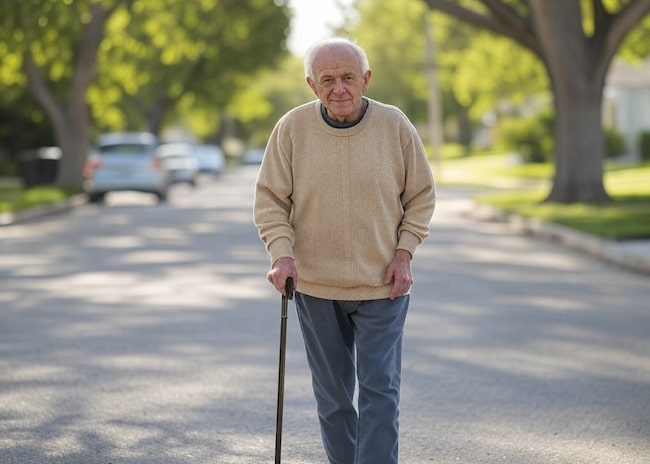Changes in health, memory, and independence can create tension, and it’s not always easy to know what to say to aging parents. Learning how to communicate with empathy can help preserve trust and foster a strong, lasting relationship.

When emotions run high, even well-meaning comments can come across as dismissive or hurtful.
“Demonstrating empathy and understanding of their perspective and doing what you can to help is key to positive interactions,” says Katie Darling, a care manager with California-based Specialized Care Management, Inc.
Instead of rushing to solve problems or take control, Darling recommends reassuring your loved one that you're on the same team.
“Even if you’ve already done the research and haven’t found a solution, letting your loved one know you are open to their requests will make them feel that you are their advocate, rather than another opponent or obstacle,” she says.
The way we respond to our parents’ stories, habits, and fears can either strengthen trust or create distance between us.
Things You Shouldn't Say to Your Aging Parents
Avoiding a few common missteps can make all the difference. Here are seven phrases to skip—and what you can say instead.

1. “You always tell me the same story!”
You might think, “You’re repeating yourself…again!” but your aging parent might say, “I don't care to listen to something you care enough to share.”
Kryss Shane, a social worker in Los Angeles who frequently works with caregivers and their aging loved ones, suggests that to prevent hearing the same stories repeatedly, ask leading questions that might elicit a different story from your parent.
Tell your mom you’d love for her to share her favorite birthday memory or ask her questions that might help populate a family tree. “Doing so increases the chance you’ll hear new stories from your loved one,” says Shane.
Try to stick to positive or happy topics rather than something like a loved one’s passing or other negative memories. You may even want to take notes or use a phone app to record these tales, as they may be future priceless moments to document as part of your family history or to share with other relatives.
2. “You need to use a cane or walker!”
Another comment that can accidentally hurt is about physical limitations, such as changes in mobility.
Many older adults want to avoid using a cane or walker because they think it makes them look old or frail.
“As a result, few will use one unless they understand there is a reason to use it,” says Jasmine Marcus, a physical therapist at McCune and Murphy Physical Therapy in Ithaca, NY. “Even people in their eighties will say, ‘Walkers are for old people, and I'm not old yet!'” says Marcus.
That fear can have older people telling white lies to medical providers when they promise to use the appliance, but then conveniently “forget” to bring it with them when out in public.
Help your parents avoid hazards by explaining that you’re worried they might fall and suffer a serious injury and that using a cane or walker can prevent that, advises Marcus.
3. “You never feel good.”
Health concerns also often dominate conversations, and the wrong response can unintentionally shut a parent down.
It’s common for older people to turn to or start conversations about their failing health.
“Family members and caregivers can often become frustrated rehashing ailments repeatedly,” says Sharon K. Brothers, MSW, CEO and co-founder of the Institute for Professional Care Education, which provides training for assisted living centers.
A better response to this popular conversation topic is allowing a limited time for the older person to “vent” about their health, demonstrating compassion, and then redirecting them, Brothers says.
After stating you’re sorry they’re in pain or have to deal with managing multiple medicines, ask about a positive memory or experience.
Whether you turn the conversation to the successes of the person’s grandchildren, ask about an accomplishment from their past, or discuss upcoming travel plans, moving the conversation to a positive topic will ease your frustration.
“It can also benefit the mental health of an older person,” says Brothers. “It’s unhealthy for someone to focus so much on negative issues. You’ll be helping increase your loved one’s health, redirecting their attention, even for a few hours.”

4. “You shouldn’t live alone anymore.”
Living arrangements are another sensitive subject, and how you frame the discussion matters.
You may be trying to express concern for a loved one’s safety, but to an older person, this statement can be perceived as a sign that their independence is being threatened.
And they’re likely to become obstinate or combative whenever the topic of moving to assisted living or a family member’s home arises.
Instead, Shane suggests expressing your concern and then working together to find a solution that is agreeable to everyone. “For example, say, ‘I'm worried that living alone could mean something could happen to you and no one would be there to help you.’”
This approach may reveal that your aging parent has friends or mail carriers who check in daily, or that your parent is worried and wants to discuss options, such as installing an emergency alert system or considering a move to a care facility.
5. “You’re too old to drive.”
Driving is closely tied to independence, which makes it one of the most sensitive topics to discuss without creating conflict.
Brothers says relinquishing the car keys can be one of the most challenging parts of aging. “The need may arise out of necessity in someone who believes he or she is still young enough to drive, but who has cognitive or physical impairments that can make driving unsafe.”
She suggests approaching this topic with an inquisitive tone.
“Start the conversation by stating you’ve noticed a lot of reckless driving on the roads and ask if that is as startling to the older person as it is to you,” she suggests. You can discuss the possibility that the senior might feel safer by cutting down the time they drive.
Ultimately, this is a complex subject and may require the assistance of a third party, such as the person’s doctor, physical therapist, or other medical professional, to explain that it’s safest for everyone if the older person no longer drives a vehicle.
“Saving that harsh reality for a non-family member, caregiver, or loved one to explain will help preserve the elder’s relationship with loved ones,” says Brothers.
VIDEO: Seven Things You Should Never Say to Aging Parents
6. “I can’t believe you missed that appointment.”
Mistakes, such as missing a doctor's appointment, can trigger frustration, but reacting harshly can damage trust.
Scolding an elderly person as if they were a naughty child is demeaning and disrespectful.
“It breaks trust and can lead to passive-aggressive behavior such as ‘forgetting’ to tell children things they should know because the senior does not want their child to boss them around, treat them like a child, or try to make decisions on their behalf,” says Teri Dreher, RN, owner and CEO of NShore Patient Advocates, a company that provides case managers to help clients navigate the health care system.
While it’s not good to miss doctor appointments, Dreher says doing so is rarely a calamity.
Avoid future issues by trying to understand the problem. If the missed appointment was initially made to address specific symptoms, perhaps the person is afraid to get an answer, worrying that they may have cancer or another serious illness.
“Talk it through in a loving, supportive manner, and encourage as much autonomy as is safe and possible, maintaining respect at all times,” Dreher advises.
You can also help ensure that your parent sticks to their healthcare appointments by offering to take them to the next one.
7. “You don’t need a jacket today – it’s warm outside.”
Even minor disagreements, such as what to wear, can escalate into bigger battles if not handled thoughtfully.
Disagreeing about weather-appropriate attire when talking to an older person is common. However, it’s important to remember that the ability to regulate temperature changes as we age.
“Many older people are more sensitive to temperatures and feel cooler than those around them who are younger,” says Brothers.
If your dad insists on wearing a few layers when it’s 75 degrees, gently explain that it’s warmer out than he might expect. “Then suggest a lighter jacket or shirt, rather than the heavy one he’s selected, which might be best at keeping him comfortable,” suggests Brothers.
And don’t be afraid to offer help choosing the best outerwear. “Let him know you’re happy to help find a jacket, shirt, etc., that might best suit the situation,” says Brothers. “Just keep in mind the older person’s typical threshold for heat and cool temperatures.”
Navigating conversations with aging parents can be challenging, especially when safety or health is at risk. But the words you choose can make a big difference. When you lead with empathy, patience, and respect, you’re more likely to be heard and maintain a strong relationship, even in the most challenging moments.
In Summary
Challenging conversations often happen when adult children feel overwhelmed or when aging parents resist help. In these moments, crossing boundaries without realizing it is easy, especially when emotions run high. Your tone of voice can carry as much weight as your words, and even well-intended comments can sound like hurtful phrases if delivered sharply or with frustration.
Confusion, repetition, and memory lapses are common as parents age, but snapping or correcting too quickly can damage a respectful relationship. Instead, aim for honest conversations that acknowledge what’s hard while focusing on shared goals.
When you approach complex topics with patience, you open the door to more productive conversations and build trust that will carry you through whatever comes next.
Recommended for you:
- How to Talk with Parents About Aging: 5 Tips and Conversation Starters
- 5 Ways to Reduce Resistance When Helping Aging Parents with Finances
- Dealing with Aging Parents and Siblings: 5 Ways to Work Better Together
About the Author
Caring.com's mission is to help the helpers. We equip family caregivers to make better decisions, save time and money, and feel less alone – and less stressed – as they face the many challenges of caregiving. Visit our site at www.caring.com to find helpful articles, support groups, and a comprehensive directory of local senior care resources.













